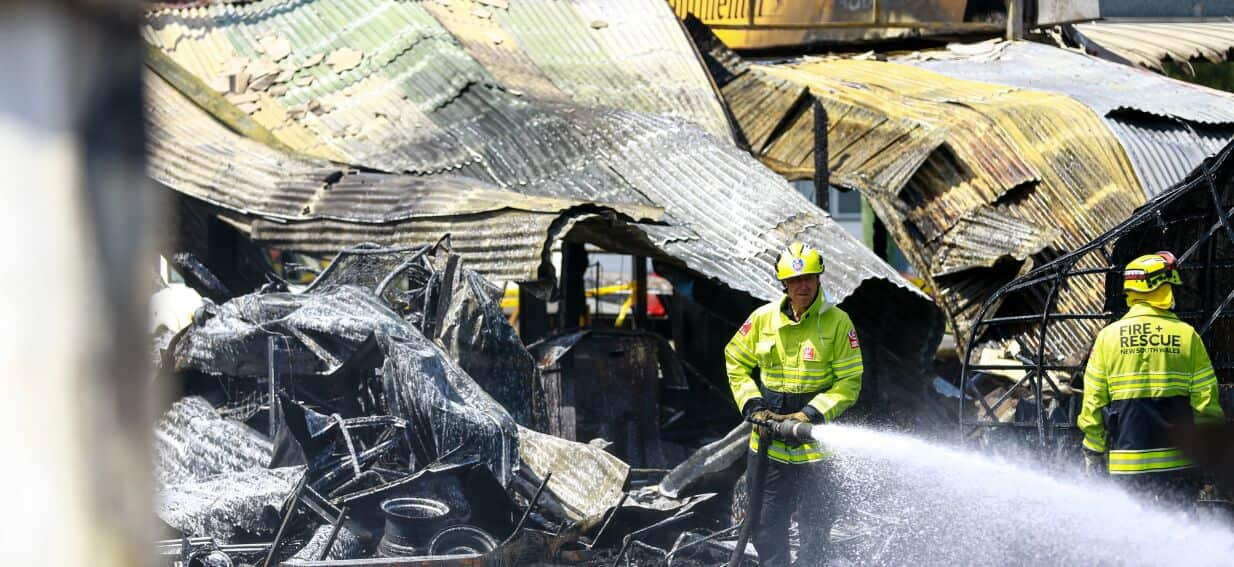Share this @internewscast.com

From droughts and fires to cyclones and floods, Australia is grappling with a series of severe weather events, and the financial toll is mounting rapidly.
As revealed by a new report from the Climate Change Authority (CCA), successive disasters have already cost the Australian economy $2.2 billion in just the first six months of 2025.
If no decisive action is taken, this figure is expected to soar to $8.7 billion each year by 2050, the report highlighted.
The report, titled “Home safe: National leadership in adapting to a changing climate,” focuses on the escalating frequency of extreme weather phenomena and emphasizes the need for national climate action leadership.
The economic cost of natural disasters and extreme weather
The Insurance Council of Australia estimates bushfires, cyclones, and floods are costing Australian homeowners around $4 billion each year, from a combination of both insured and uninsured losses, mental health impacts, and loss of housing and employment.
Costs are rising as the climate changes and hazards become more frequent and severe, with regions and homes that were previously unaffected now becoming at risk, according to the Climate Change Authority.
Climate Change Authority chair Matt Kean said: “Our homes are our sanctuaries — and the biggest financial investment most Australians will ever make.”
The report referenced recent research from the Insurance Council of Australia (ICA), the Treasury, and The McKell Institute into the costs of residential building damage resulting from extreme weather. The research found the cost to residential buildings is $2 billion a year for cyclones, $1.5 billion a year for floods and $486 million a year for bushfires.
As these events become more frequent, the cost of insurance premiums has also increased. The CCA examined research from the Actuaries Institute and ICA, which found insurance claims for ex-Tropical Cyclone Alfred and the North Queensland floods exceeded $1.2 billion.
As cost of living pressures also increase, 15 per cent of Australian households experienced home insurance affordability stress in 2024, according to the research.
Climate-related disasters are also projected to have long-term consequences on property values in the affected regions, potentially slashing more than $500 billion from the Australian property market by 2030.
Property damage is not the only economic impact of climate change and extreme weather events.
In addition to housing expenses, the report indicates Australians are contending with significant effects on physical health, mental well-being, displacement, and their ability to work and pursue education.
Can climate change costs be reduced?
The CCA has called on the government to take steps to reduce the risks and costs associated with climate-related extreme weather events.
The report’s recommendations include making appropriate investments in infrastructure and services, ensuring standards, laws and regulations are fit-for-purpose for a changing climate, and equipping Australians with the information and resources to improve their decision-making.
Research by the CSIRO, Australia’s national science agency, found every dollar invested in climate adaptation or disaster risk reduction saves $2 to $11 in recovery costs.
“Authorities will need to review and tighten building codes. Parts of coastal Queensland and WA not now covered by cyclone construction standards may need to be, and soon,” Kean said.
“These are the kinds of practical steps we can take to make Australia more resilient in a changing climate.”
A spokesperson from the Department of Climate Change, Energy, the Environment and Water said work is underway across all levels of government and the private sector to improve the resilience of infrastructure, services, and the built environment.
“The government released the National Climate Risk Assessment first pass in March 2024, and is now progressing to the full release of Australia’s first National Climate Risk Assessment as a matter of priority, in addition to a corresponding National Adaptation Plan,” the spokesperson said.
“The National Adaptation Plan will represent a step change in the Australian government’s response to climate change. It establishes, for the first time, a framework for adapting to the physical climate risks that are nationally significant.”
The National Climate Risk Assessment identified 56 nationally significant climate risks facing Australia, along with a subset of 11 priority risks that require further analysis. It is being used by the government to examine the impacts and risks to Australia from climate change.
Current planning and investments in infrastructure and services include the Critical Infrastructure Resilience Strategy and Plan, the Disaster Ready Fund, and the Queensland Betterment Funds program.












